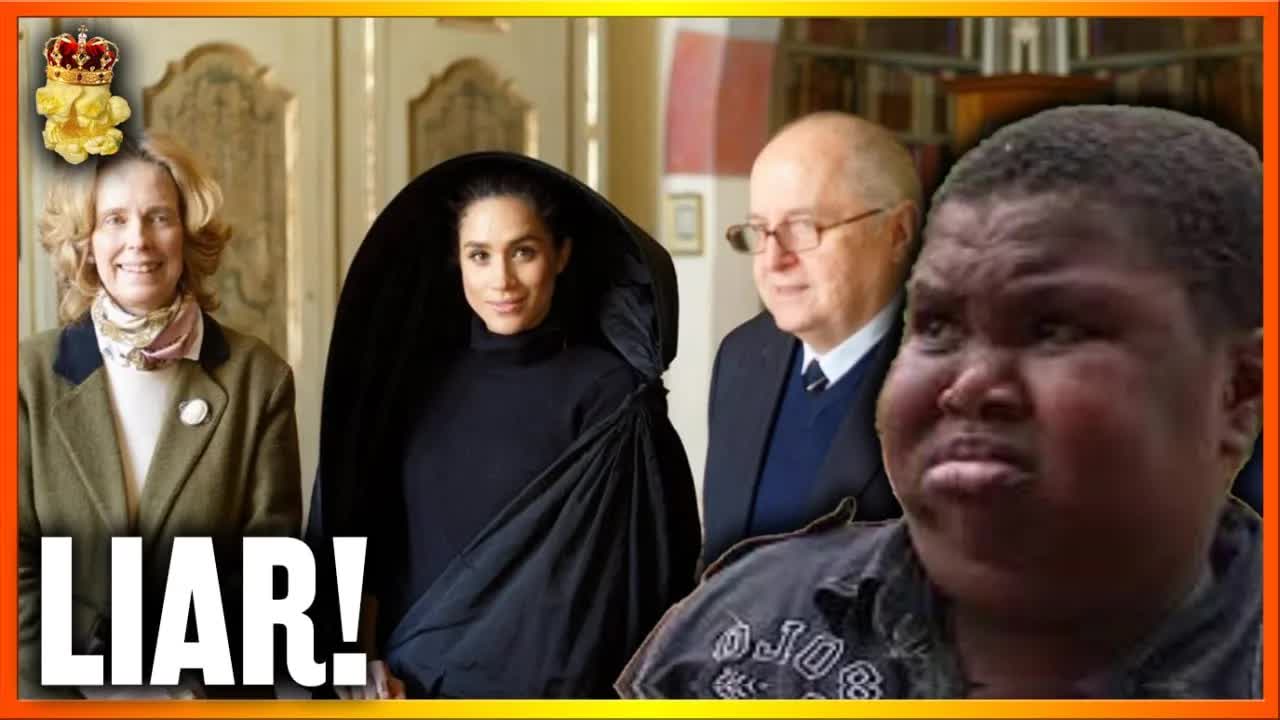In a world where ancestry tests can reveal surprising results, Meghan Markle‘s recent claim of being 43% Nigerian has raised more than a few eyebrows.
While the Duchess of Sussex has embraced this newfound heritage, many, including some Nigerians, are skeptical about the authenticity of her assertions.
This skepticism was echoed by Andy Signor on Popcorn Planet, who delved into the details surrounding Markle’s ancestry claims and the broader implications of her narrative.
During a recent episode of her podcast, “Archetypes,” Markle discussed her mixed-race background and her purported Nigerian roots.
Prince Harry also mentioned this during the opening of the Invictus Games in Germany, where he expressed excitement about Nigeria sending its first delegation.
However, amidst the celebrations, questions lingered about the legitimacy of Markle’s claims.
Is there any substance behind her assertion, or is it merely a publicity stunt?
Markle first revealed her Nigerian heritage in 2022, sharing this information with guest Ziwi on her podcast.
When she stated she was 43% Nigerian, Ziwi’s incredulous response hinted at a broader disbelief among those familiar with Markle’s family history.
Many Nigerian women, in particular, have voiced their doubt, questioning the validity of her ancestry test results.
Interestingly, Markle’s interest in her heritage isn’t new.
Prior to her relationship with Prince Harry, she explored her Maltese roots during a trip to Malta in 2015, where she even donned traditional attire.
During this visit, she expressed a deep connection to the island, noting that her great-great-grandmother was born there.
It raises a curious question: why has she shifted her focus from Malta to Nigeria?
As Markle has navigated her identity in the public eye, her narrative has evolved significantly.
Once celebrating her Maltese heritage, she now emphasizes her Nigerian roots.
Critics argue that this shift is strategic, especially after the allegations of racism directed at the royal family.
The timing of her claims has led many to suspect that she is leveraging her heritage for personal gain.
Photos from her Malta trip reveal a carefree Markle relishing the local culture, food, and landscapes.
She described the countryside as “bucolic bliss” and shared fond memories of her time there.
Yet, as she embraces her Nigerian ancestry, one can’t help but wonder why her Maltese heritage has seemingly fallen by the wayside.
The scrutiny over Markle’s ancestry extends beyond just her Nigerian claims.
Her recent revelations about being Irish have also sparked intrigue, as many people typically have some awareness of their ethnic backgrounds.
For Markle, however, the sudden discovery of such diverse roots raises questions about the accuracy of her ancestry claims.
When examining Markle’s family tree, it appears that much of her heritage is rooted in America, with little evidence supporting her claims of Nigerian descent.
Critics point out that her father’s side shows no indication of Nigerian ancestry, leading to further skepticism about the validity of her 43% claim.
As more people question the authenticity of her narrative, Markle faces mounting pressure to substantiate her ancestry claims.
Can she provide credible evidence to support her assertions?
Without tangible proof, many remain unconvinced, leaving Markle in a precarious position.
The discourse surrounding Markle’s ancestry is not just about her identity; it’s about how narratives can be shaped and reshaped in the public eye.
As she continues to navigate the complexities of her heritage, the question remains: is she genuinely embracing her roots, or is she merely capitalizing on them for fame and attention?
This ongoing saga invites us to reflect on the nature of identity and the stories we tell about ourselves.
What do you think?
Are Markle’s claims legitimate, or does it seem like she’s chasing the next trend?
Your thoughts could shed light on this intriguing conversation surrounding heritage and authenticity.










